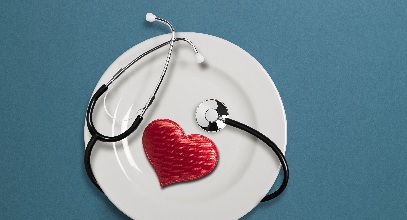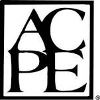Pharmacy

Doctor of Pharmacy

Accreditation Council for Pharmacy Education
South University's Doctor of Pharmacy program in Savannah, GA, is accredited by the Accreditation Council for Pharmacy Education 190 S LaSalle ST #3000; Chicago, IL 60603; 312-664-3575; www.acpe-accredit.org).

Take Your Career to the Next Level
Admissions Calendar
Admissions Calendar 2019-2020July 2019
Start Accepting Applications for 2019
September 2019 - April 2020
Admissions Interviews
April 1, 2020
Application Deadline
May 2020
Admissions Decisions Finalize
June 2020
Classes begin
Admission Requirements
Please see the South University academic catalog for program specific admissions requirements.Career Outlook
Community/Independent Pharmacy Careers: Retail pharmacists dispense medications at drug stores or grocery stores. Some pharmacists own independent pharmacies and are able to provide more personalized care to their patients. Retail pharmacists are becoming more involved in direct patient care through such activities as counseling patients on disease states, including diabetes and hypertension, medication therapy management (MTM) and administering immunizations.
Clinical Pharmacy Careers: Clinical pharmacists work in a hospital or in a clinic setting as part of a medical care team. They typically visit patients with a physician and help to determine which medications and doses would be most effective for each patient's condition. In addition, they facilitate clinics which provide services such as anticoagulation and disease state management. They are more involved in drug therapy initiation and management than pharmacists in some other settings.
Long-term care: Long-term care facilities are homes where ongoing care is provided to the elderly or incapacitated individuals who are not in need of acute medical care but who are unable to care for themselves. Pharmacists in this setting review the medications of the patients living in these homes and provide recommendations to the providers of care.
Nuclear Pharmacy Careers: Nuclear pharmacists are responsible for measuring and delivering the radioactive materials which are used in digital imaging (MRI, CT, etc.) and other procedures in medical offices and hospitals. Due to the nature of the radioactive materials and how they are handled, nuclear pharmacists are typically required to start each work day very early, sometimes pre-dawn, as the radioactive materials must be delivered within a few hours of their use, or they lose their effectiveness.
Home infusion: These pharmacists are responsible for preparing intravenous medications for patients requiring such products as antibiotics, parenteral nutrition, or chemotherapy.
Academia: Pharmacists are an integral part of the faculty in Colleges and Schools of Pharmacy. In this setting, pharmacists are responsible for didactic teaching of clinical pharmacy courses and also serve as preceptors for students completing rotations, giving them the opportunity to observe clinical pharmacy activities.
Pharmaceutical Industry: Pharmacists are often employed by companies within the pharmaceutical industry to provide drug information, in depth information to healthcare providers, or facilitate clinical trials.
Pharmacy Management: Pharmacy District and Regional Managers supervise teams of pharmacy managers and staff pharmacists within a retail chain.
This list only represents a sample of the many practice opportunities that are available to pharmacists.
Curriculum
Prerequisites
All pre-pharmacy coursework must be completed prior to matriculation to the South University Doctor of Pharmacy program on or before May 25th of the program entrance year. The student must earn a grade of C (2.0) or better in each prerequisite course.
Prerequisites for June 2020
|
Course Title |
Semester Hours |
|
English Composition |
3 sem. hrs. (1 sem.) / 5 qtr. hrs. |
|
Literature (a) |
3 sem. hrs. (1 sem.) / 5 qtr. hrs. |
|
Biology I and II with Labs (b) |
8 sem. hrs. (2 sem.) / 12 qtr. hrs. |
|
Microbiology |
3 sem. hrs. (1 sem.) / 5 qtr. hrs. |
|
General Chemistry I and II with Labs (b) |
8 sem. hrs. (2 sem.) / 12 qtr. hrs. |
|
Organic Chemistry I and II with Labs (b) |
8 sem. hrs. (2 sem.) / 12 qtr. hrs. |
|
Anatomy and Physiology I and II (c) |
6 sem. hrs. (2 sem.) / 10 qtr. hrs. |
|
Physics I (d) |
3 sem. hrs. (1 sem.) / 5 qtr. hrs. |
|
Economics |
3 sem. hrs. (1 sem.) / 5 qtr. hrs. |
|
Psychology or Sociology |
3 sem. hrs. (1 sem.) / 5 qtr. hrs. |
|
Public Speaking |
3 sem. hrs. (1 sem.) / 5 qtr. hrs. |
|
Calculus |
3 sem. hrs. (1 sem.) / 5 qtr. hrs. |
|
Statistics |
3 sem. hrs. (1 sem.) / 5 qtr. hrs. |
|
Electives (e) |
6 sem. hrs. (2 sem.) / 10 qtr. hrs. |
|
TOTAL |
60-65 hours / 96-101 hours |
Comments on above:
- English, American or World Literature are preferred to meet the Literature requirement. One English Composition is required. A second English Composition course may be accepted in lieu of a Literature course at the discretion of the Office of Admissions.
- These courses must include a “live” lab. Students with science courses taken prior to 2012-2013 will be required to retake one modern Biology and one modern Chemistry course to meet the prerequisite requirements.
- A lab is recommended but not required for Anatomy and Physiology I and II. A separate course of Anatomy and a separate course of Physiology will be accepted in lieu of combined courses.
- A lab is recommended but not required for Physics I.
- Electives should in the Humanities, Social/Behavioral Sciences or Arts. Substitutions may be accepted at the discretion of the Office of Admissions.
Program Quality Indicators
Please click here for Program Quality Indicators of our South University School of Pharmacy.Outcomes
Domain 1: Foundational Knowledge
- Apply principles of chemistry, biochemistry, and pharmacology to medication safety and efficacy.
- Apply the principles of pharmaceutical science and calculations to drug design and drug delivery systems.
- Apply pharmacokinetic, pharmacodynamic, and pharmacogenomic principles to therapeutic strategies.
- Compare and contrast the physiology and biochemistry of normal body system function to that of abnormal function.
- Critically analyze literature related to drugs and diseases to enhance clinical decision-making.
Domain 2: Essentials for Practice and Care
- Collect subjective and objective patient information to identify medication and medical-related problems.
- Assess and analyze information to determine effectiveness of therapy, identify problems, and prioritize needs to achieve optimal patient care.
- Design an individual patient-centered care plan in collaboration with the patient and other health care professionals that is evidence-based and cost-effective to maximize desired effects.
- Implement the care plan in collaboration with the patient, caregiver, and other healthcare professionals.
- Follow-up and monitor the care plan to evaluate its effectiveness and modify the plan as needed.
Domain 3: Approach to Practice and Care of Individual Patients
- Demonstrate accurate, safe, and time-sensitive preparation, dispensing, and administration of pharmaceuticals.
- Manage pharmacy resources to optimize pharmacotherapy outcomes for individual patients.
- Educate patients and health care providers.
Domain 4: Approach to Practice and Care of Populations
- Demonstrate skills needed to participate in, or provide, preventive services.
- Apply research processes to ensure informed decision-making.
Personal and Professional Development
- Examine personal attributes that may enhance or limit personal and professional growth.
- Demonstrate responsibility for creating and achieving shared goals, regardless of organizational position.
- Engage in innovative and creative methods to accomplish goals.
- Demonstrate professional citizenship in the delivery of patient care, distribution of medications, and the promotion of wellness and disease prevention.
- Advocate for the profession and patients.
- Effectively communicate verbally and nonverbally when interacting with an individual, group, or organization.
- Demonstrate problem solving skills including the ability to think critically, exercise professional judgment, and articulate and defend a decision.
- Exhibit behaviors and values that are consistent with the trust bestowed to the profession by patients, other healthcare providers, and society.
- Demonstrate knowledge of, and compliance with, federal and state laws/regulations governing the practice of pharmacy.
Create Value for Stakeholders of the Health Care System
- Demonstrate the ability to create a business plan and/or strategy to launch a new service, product, or business line or improve an existing one.
- Demonstrate the ability to apply performance improvement strategies to monitor the quality of a service, product, or business.
- Demonstrate the ability to apply business and financial management tools to monitor the performance of a service, product, or business.
Handbooks
School of Pharmacy Handbooks
Download the School of Pharmacy Student Handbook below
Download the Experiential Education handbooks or rotation calendars/schedules for South University preceptors below.
South University School of Pharmacy
The South University School of Pharmacy welcomes students into a learning community designed to facilitate critical thinking and develop problem-solving skills while providing the industry current technology and coursework essential for real-world practice. Our accelerated PharmD program is one of only a limited number nationwide and the only one in the Southeastern United States that provides four academic years of study within three calendar years.
Faculty
South University Columbia
Office of the Dean
Arneson, Dean L. Pharm.D., Ph.D.
Dean, School of Pharmacy
Professor of Pharmacy Practice (Pharmacy Administration)
Pharm.D., M.S., Ph.D. University of Nebraska Medical Center
darneson@southuniversity.edu
Brown, Daniel L., Pharm.D.
Associate Dean for Operations
Professor of Pharmacy Practice
B.S. University of Wisconsin
Pharm.D. University of the Pacific
danbrown@southuniversity.edu
Rhyne, Sandra., M.Ed.
Assistant Dean for Student Affairs
B.S. Organization Communication, University of North Carolina, Greensboro
M.Ed. Student Personnel Services, University of South Carolina
srhyne@southuniversity.edu
Ten Eick, Andrew P., Pharm. D.
Experiential Education Coordinator
Associate Professor of Pharmacy Practice
B.S., Pharmacy, University of Iowa
Pharm.D., University of Iowa
ateneick@southuniversity.edu
Department of Pharmacy Practice
Arneson, Dean L. Pharm.D., Ph.D.
Dean, School of Pharmacy
Professor of Pharmacy Practice (Pharmacy Administration)
Pharm.D., M.S., Ph.D. University of Nebraska Medical Center
darneson@southuniversity.edu
Becker, Joel, Pharm.D.
Adjunct Professor of Pharmacy Practice
B.S., Pharmacy, Philadelphia College of Pharmacy
Pharm.D., Shenandoah University
jbecker@southuniversity.edu
Braga, Sarah F., Pharm.D.
Director of Drug Information
Associate Professor of Pharmacy Practice
B.S. Pharmacy, Medical University of South Carolina College of Pharmacy
Pharm.D., Medical University of South Carolina College of Pharmacy
sbraga@southuniversity.edu
Clark, Kelly , Pharm.D.,
Assistant Professor of Pharmacy Practice
Coordinator, Integrated Pharmacy Skills Lab
Pharm.D., University of Kentucky, College of Pharmacy
kjclark@southuniversity.edu
Norwood, Alyssa, Pharm. D.
Adjunct Assistant Professor of Pharmacy Practice
B.S. Pharmacy, University of South Carolina School of Pharmacy
Pharm.D., Shenandoah University School of Pharmacy
anorwood@southuniversity.edu
Rice, Kathryn, Pharm.D.
Director of Interpersonal Education
Assistant Professor of Pharmacy Practice
Pharm.D., University of Pittsburgh School of Pharmacy
karice@southuniversity.edu
Shirer, Allyson, Pharm. D.
Adjunct Professor of Pharmacy Practice
B.S., Pharmacy, University of South Carolina School of Pharmacy
Pharm.D., University of South Carolina College of Pharmacy
ashirer@southuniversity.edu
Ware, Kenric B., Pharm.D.
Assistant Professor of Pharmacy Practice
B.S., Biology, Fort Valley State University
B.S., Medical Technology, Medical College of Georgia
M.B.A., South University
Pharm.D., Howard University School of Pharmacy
kbware@southuniversity.edu
Wynn, William P., Pharm. D.
Adjunct Professor of Pharmacy Practice
B.S., Pharmacy, Medical University of South Carolina School of Pharmacy
Pharm.D., University of South Carolina College of Pharmacy
wwynn@southuniversity.edu
Department of Pharmaceutical Sciences
Samala, Ramakrishna, M. Pharm, Ph.D.
Assistant Professor of Pharmaceutical Sciences
M. Pharmacy, Kakatiya University (India)
Ph.D., Texas Tech University Health Sciences Center
rsamala@southuniversity.edu
Pharmacy Staff
Johnson, Akiliah R, B.S.
Clinical Coordinator
B.S., Biology, University of South Carolina
akijohnson@southuniversity.edu
Lakik, Julia, B. A.
Executive Assistant
B.A. English, State University of New York, Oswego
jlalik@southuniversity.edu
Mission
South University School of Pharmacy
To prepare pharmacists for life-long learning in the practice of collaborative patient-centered care, and promote excellence in teaching, scholarship and service.
Success Stories
We're committed to helping our graduates make impact in their professional and personal lives. We applaud our pharmacy alumni and the difference they make. Check out what our Pharmacy graduates have to say.
What's New
Latest News and Blogs

Jun 24, 2025
Unlock Your Potential with a PharmD + MBA in Healthcare Administration
South University's Pharmacy program offers an MBA in Healthcare Administration as part of its curriculum.

Jun 12, 2025
Anesthesiologist Assistant Students Transform Global Anesthesia Safety
The Anesthesia Assistant students held their 10th Annual Chili Cookoff fundraiser to help purchase materials for safer anesthesia care.

Jun 11, 2025
Alumni Spotlight: Advancing Clinical and Leadership Skills
Angela Eckles graduated from South University in 2024 and she credits her education with helping her career.

Jun 03, 2025
The Foundations of a Healthy Academic Relationships
In this final installment of the QEP series, learn how to foster healthy academic relationships and use those connections to support your schooling.

May 28, 2025
Alumni Spotlight: Career Change to Physical Therapy Assistant
Amy Wright Owens knows first-hand how physical therapist assistants can change lives. Read about her journey to become a PTA in this blog.

May 28, 2025
South University's Disaster Response Exercise 2025
Read how South University, Columbia hosted its annual Disaster Response Exercise in April.






